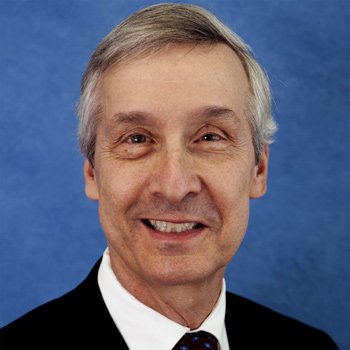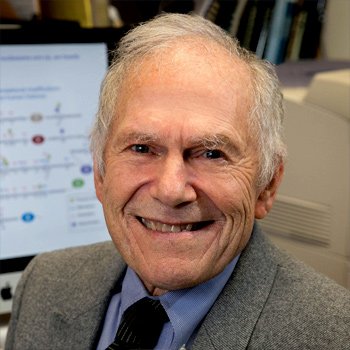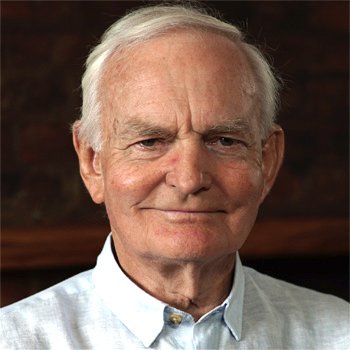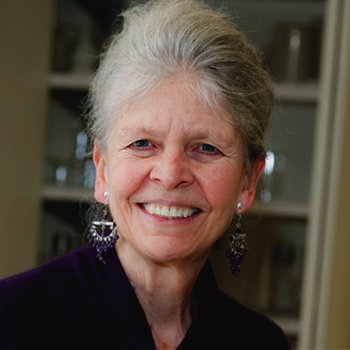
C. David Allis, Ph.D., of The Rockefeller University, co-winner of the Albert Lasker Basic Medical Research Award
The Albert and Mary Lasker Foundation today named four scientists as winners of its annual awards for work that has advanced the potential translation of basic science into addressing unmet medical needs, as well as for public service.
The awards will be presented on September 21 in New York City.
C. David Allis, Ph.D., of The Rockefeller University and Michael Grunstein, Ph.D., of the University of California, Los Angeles, will receive the Albert Lasker Basic Medical Research Award for their discoveries elucidating how gene expression is influenced by chemical modification of histones.
Dr. Allis discovered that an established gene co-activator can add acetyl groups to histones and that this modification is crucial for efficient gene expression—findings that sealed the connection between histone modifications and genetic regulation.
Drs. Grunstein and Allis also revealed a previously hidden layer of gene control that contributes meaningfully to biological processes. From that foundational research, investigators have discovered that errors in histone modifications contribute to several developmental disorders and various forms of cancer, providing new targets for potential therapies.
“David started his work in an organism called Tetrahymena, otherwise known as pond scum. We started with yeast. Who would have thought that these two model organisms, which are microorgnisms, would have been so germane to the human condition?” Dr. Grunstein asked rhetorically, during a teleconference in which he and the other winners answered questions from reporters.
Dr. Allis grew up in Cincinnati, now home to cancer foundations such as The Cure Starts Now that fund research for pediatric cancer research: “Some of the most deadliy brain tumors now that young children get, that ironically have now been identified to carry mutations in the very histone proteins that Michael Grunstein and I have dedicated our careers to, they’re really very much front and center in Cincinati.

Michael Grunstein, Ph.D., of the University of California, Los Angeles, co-winner of the Albert Lasker Basic Medical Research Award
“It is a circle of life kind of thing,” Dr. Allis observed, “that we dedicated our careers to study these proteins, and trying to unravel fundamental mechanisms, and here come Cincinnati-based operations and foundations.That really has a lot of personal meaning and inspiration to me.”
Dr. Allis received his Ph.D. in biology in 1978 from Indiana University, and was a postdoctoral fellow at the University of Rochester. He joined Rockefeller in 2003 and is the Joy and Jack Fishman Professor and head of the Laboratory of Chromatin Biology and Epigenetics, where he studies the role of DNA packaging proteins in gene expression, DNA replication, and repair. Recent work in Dr. Allis’ lab has focused on epigenetic causes of a diverse range of diseases and has helped illuminate the cellular processes that drive several types of cancer.
Dr. Grunstein was born in Romania to Holocaust survivors, and moved to Montreal, Canada, as a child. He obtained his Ph.D. from the University of Edinburgh, Scotland, and did his postdoctoral training at Stanford University. Soon after coming to UCLA in 1975 he pioneered the genetic analysis of histones in yeast and showed for the first time that histones are regulators of gene activity in living cells. He now studies the means by which histone modifications regulate gene activity and DNA replication in yeast, mouse and human cells.

John B. Glen, Ph.D., formerly of AstraZeneca, winner of the 2017 Lasker-DeBakey Clinical Medical Research Award
Discovering Propofol
John B. (Iain) Glen, Ph.D., formerly of AstraZeneca, has won the Lasker-DeBakey Clinical Medical Research Award for the discovery and development of propofol, the most widely used agent for induction of anesthesia in patients worldwide due to its rapid action and freedom from residual effects.
Dr. Glen was born and educated in the West of Scotland, and was awarded a Ph.D. by the University of Glasgow in 1982. Ten years earlier, he joined ICI Pharmaceuticals as a research biologist in the Anaesthetics Project Team, whose goal was the discovery of novel anaesthetic drugs for use in man.
“We were looking for a drug which would mimic the quality of anesthesia, of thiopentalin, but differ from it in that it could be used also for maintenance of anesthesia. We started looking at a whole range of compounds,” Dr. Glen recalled.
During the 1970s, Dr. Glen began testing drug candidates to find one that offered a rapid onset of anesthesia, amenability to continued delivery for long surgical procedures, and a fast, gentle recovery. In 1973, he selected 2,6-diisopropylphenol (propofol), which had a promising profile of activity and continued more detailed evaluation.
“It did have the profile that suggested it could be used for maintenance and recovery at the end of propofol anesthesia, and the end of propofol anesthesia was very rapid and clear headed. This was a potential attraction for its use in outpatient anesthesia,” Dr. Glen added.
He and colleagues worked through several setbacks and complications to formulate propofol for human use; many at ICI Pharmaceuticals saw no commercial potential for propofol, and Dr. Glen’s team only continued their research by a 5–4 vote.
After working through several setbacks and complications to formulate propofol for human use, Dr. Glen and his collaborators confirmed the safety and efficacy of propofol—whose milky color has given it the nickname among anesthesiologists as “milk of amnesia.” Introduced in 1989, propofol is administered over 60 million times per year in the U.S.
Dr. Glen retired from his post as clinical specialist in anaesthesia at AstraZeneca in 2000, and now heads an independent pharmaceutical consultancy, Glen Pharma.

Joan Argetsinger Steitz, Ph.D., of Yale University, winner of the Lasker-Koshland Special Achievement Award in Medical Science
RNA Discoveries, Passionate Advocacy
Joan Argetsinger Steitz, Ph.D., of Yale University, will receive the Lasker-Koshland Special Achievement Award in Medical Science for four decades of leadership in biomedical science. That leadership, according to the Lasker Foundation, is exemplified by pioneering discoveries in RNA biology, generous mentorship of budding scientists, and passionate advocacy for greater inclusion of women in the scientific community.
In her research, Dr. Steitz discovered that small nuclear ribonucleoproteins (snRNPs) play a central role in splicing, a key step in gene expression. During this process, cells create the RNA templates used to manufacture proteins. A complicated molecular machine with a core composed of snRNPs cuts out internal sections of precursor messenger RNAs and reconnects the ends to create the final messages.
For ten years, Dr. Steitz led the Jane Coffin Childs Fund, which grants postdoctoral fellowships to early career researchers. In 2005, she co-authored the National Academy of Sciences report, “Beyond Bias and Barriers: Fulfilling the Potential of Women in Academic Science and Engineering,” which called for immediate action to eliminating gender bias in academia by university administrators, professional societies, federal funding agencies and foundations, government agencies, and Congress.
“I actually had no idea that I would ever end up as a professor at a major university doing science. During my whole education, when I looked around, I didn’t see any women science professors or any women running labs, even though I worked in several labs,” Dr. Steitz said. “Things were very lonely at that time, because there were very, very, very few women staring out. And now, things are a lot better. There’s still a long way to go, and a lot of reasons why women have more difficulties, I think, progressing in science. But things are looking up, and we need to all keep working on it.”
Dr. Steitz was born in Minneapolis to schoolteacher parents who encouraged her interest in science from a young age. She earned her Ph.D. from Harvard in 1967, and conducted her doctoral research in the lab of James D. Watson, Ph.D., co-winner of the 1962 Nobel Prize for his role in the discovery of the double-helical structure of DNA. She was the first woman graduate student in his laboratory.
After completing postdoctoral work at the University of Cambridge, Dr. Steitz joined the Department of Molecular Biophysics and Biochemistry at Yale as an assistant professor and later became an associate and full professor, as well as chair of the department.
For 73 years, the Lasker Awards have honored scientists, clinicians, and public citizens worldwide who have made major advancements in the understanding, diagnosis, treatment, cure, or prevention of human disease. Each award category includes an honorarium of $250,000.
Recipients of the Lasker Medical Research Awards are selected by an international jury chaired by Joseph L. Goldstein, M.D., recipient of the 1985 Lasker Award for Basic Medical Research and the Nobel Prize in Physiology or Medicine. Eighty-seven Lasker laureates have received the Nobel Prize, including 40 in the last three decades.


